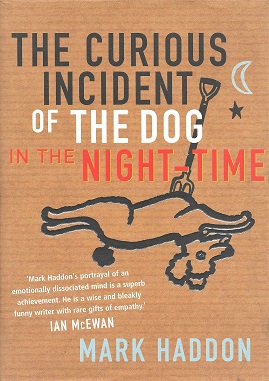
The Curious Incident of the Dog in the Night-Time is a 2003 mystery novel by British writer Mark Haddon. Its title refers to an observation by the fictional detective Sherlock Holmes in the 1892 short story "The Adventure of Silver Blaze". Haddon and The Curious Incident won the Whitbread Book Awards for Best Novel and Book of the Year, the Commonwealth Writers' Prize for Best First Book, and the Guardian Children's Fiction Prize. Unusually, it was published simultaneously in separate editions for adults and children.

Diagnoses of autism have become more frequent since the 1980s, which has led to various controversies about both the cause of autism and the nature of the diagnoses themselves. Whether autism has mainly a genetic or developmental cause, and the degree of coincidence between autism and intellectual disability, are all matters of current scientific controversy as well as inquiry. There is also more sociopolitical debate as to whether autism should be considered a disability on its own.

Autistic art is artwork created by autistic artists that captures or conveys a variety of autistic experiences. According to a 2021 article in Cognitive Processing, autistic artists with improved linguistic and communication skills often show a greater degree of originality and attention to detail than their neurotypical counterparts, with a positive correlation between artistic talent and high linguistic functioning. Autistic art is often considered outsider art. Art by autistic artists has long been shown in separate venues from artists without disabilities. The works of some autistic artists have featured in art publications and documentaries and been exhibited in mainstream galleries. Although autistic artists seldom received formal art education in the past, recent inclusivity initiatives have made it easier for autistic artists to get a formal college education. The Aspergers/Autism Network's AANE Artist Collaborative is an example of an art organization for autistic adults.

Alexander Plank is an American autism advocate, filmmaker and actor. He is known for founding the online community Wrong Planet, working on FX's television series The Bridge, and acting on The Good Doctor. At the age of 9, Plank was diagnosed with Asperger syndrome. Plank started Wrong Planet at the age of 17 in order to find others like him on the Internet. After the popularity of Wrong Planet grew, Plank began to be frequently mentioned in the mainstream media in articles relating to autism, Asperger's, and autism rights.
Autism spectrum disorders (ASDs) or autism spectrum conditions (ASCs) describe a range of conditions classified as neurodevelopmental disorders in the DSM-5, used by the American Psychiatric Association. As with many neurodivergent people and conditions, the popular image of autistic people and autism itself is often based on inaccurate media representations. Additionally, media about autism may promote pseudoscience such as vaccine denial or facilitated communication.

Graeme C. Simsion is a New Zealand-born Australian author, screenwriter, playwright, and data modeller, best known for his first novel The Rosie Project.

The Reason I Jump: One Boy's Voice from the Silence of Autism is a biography attributed to Naoki Higashida, a nonverbal autistic person from Japan. It was first published in Japan in 2007. The English translation, by Keiko Yoshida and her husband, English author David Mitchell, was published in 2013.
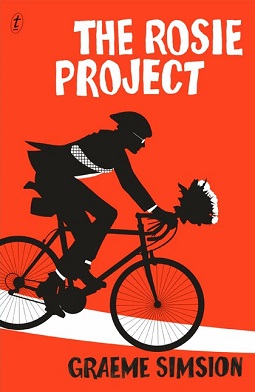
The Rosie Project is a 2013 Australian novel by Australian novelist Graeme Simsion. The novel centres on genetics professor Don Tillman, who struggles to have serious relationships with women. With a friend's help, he devises a questionnaire to assess the suitability of female partners. His plans are set off course when he meets Rosie, who does not fit many of Tillman's criteria, but becomes a big part of his life. The work was first published on 30 January 2013 in Australia by Text Publishing and the rights have since been sold in over 40 other countries. International sales are in excess of 3.5 million copies and the book was named Book of the Year for 2014 by the Australian Book Industry Association. In the United States the novel was published through Simon & Schuster and in the United Kingdom through Penguin Books.
The history of autism spans over a century; autism has been subject to varying treatments, being pathologized or being viewed as a beneficial part of human neurodiversity. The understanding of autism has been shaped by cultural, scientific, and societal factors, and its perception and treatment change over time as scientific understanding of autism develops.

Atypical is an American comedy-drama television series created by Robia Rashid for Netflix. The series takes place in Connecticut, and focuses on the life of 18-year-old Samuel "Sam" Gardner, who is on the autism spectrum. The first season was released on August 11, 2017, consisting of eight episodes. The 10-episode second season was released on September 7, 2018. In October 2018, the series was renewed for a third season of ten episodes, which was released on November 1, 2019. In February 2020, it was renewed for a fourth and final season, which premiered on July 9, 2021.
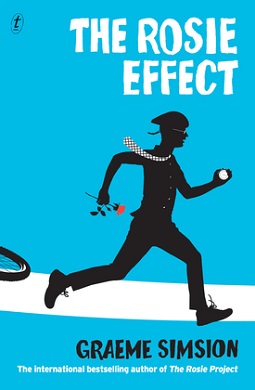
The Rosie Effect is a 2014 novel by Australian novelist Graeme Simsion and the second book of a trilogy including the previous instalment, The Rosie Project, and its sequel, The Rosie Result. The work was first published on 24 September 2014 in Australia / New Zealand by Text Publishing and the rights have since been sold in 24 other territories. International sales are more than 1 million copies. In the United States the novel was published through Simon & Schuster and in the United Kingdom through Penguin Books. The novel centres on Don Tillman, a socially awkward genetics professor, and his preparation for fatherhood.

The Best of Adam Sharp is a 2016 novel by Australian novelist Graeme Simsion. The work was first published on 19 September 2016 in Australia / New Zealand by Text Publishing. English-language rights have been sold worldwide. Translation rights have been sold in Czech, Estonian, French, German, Hebrew, Hungarian, Italian, Dutch, and Polish. Movie rights have been optioned to Vocab Films with Toni Collette attached to play the role of Angelina.
The Interagency Autism Coordinating Committee (IACC) is a United States federal advisory panel within the Department of Health and Human Services (HHS). It coordinates all efforts within HHS concerning autism spectrum disorder (ASD).
Helen Hoang is the pen name of an American romance novelist, best known for her best-selling debut novel The Kiss Quotient.

All in a Row Live is a play by Alex Oates about a family with an 11-year-old child on the autism spectrum. The play explores the experiences of the parents of a nonverbal, sometimes violent, autistic boy and the emotions that they experience on the night before he is taken to a residential school for children with disabilities.
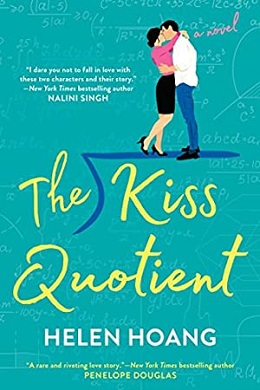
The Kiss Quotient is a 2018 novel written by Helen Hoang. It follows Stella, an autistic woman who hires an escort in order to explore intimacy with other people.
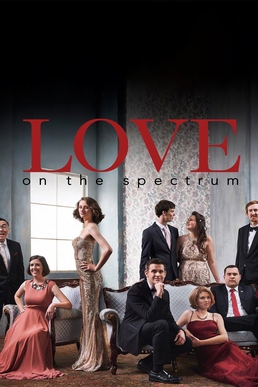
Love on the Spectrum is an Australian reality television show that follows people on the autism spectrum as they explore the dating world. The show is produced by Northern Pictures for ABC TV, and was made available to stream on ABC iview and Netflix.

Current research indicates that autistic people have higher rates of LGBT identities and feelings than the general population. A variety of explanations for this have been proposed, such as prenatal hormonal exposure, which has been linked with both sexual orientation, gender dysphoria and autism. Alternatively, autistic people may be less reliant on social norms and thus more open about their orientation or gender identity. A narrative review published in 2016 stated that while various hypotheses have been proposed for an association between autism and gender dysphoria, they lack strong evidence.














